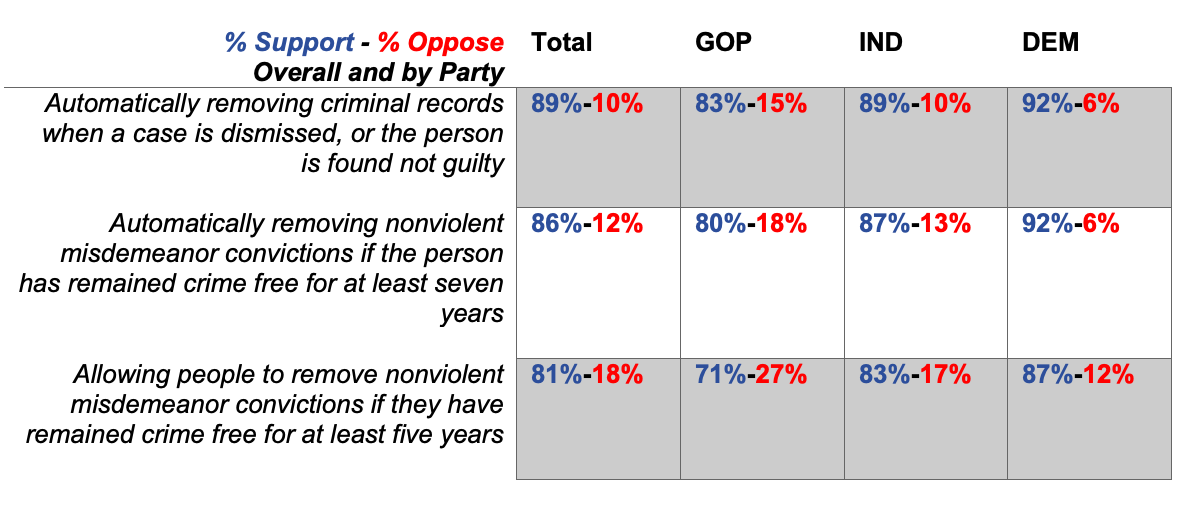The 2021 report “Custodial Sanctions and Reoffending: A Meta-Analytic Review” by Damon M. Petrich, Travis C. Pratt, Cheryl Lero Jonson, and Francis T. Cullen, looks at 116 studies that have been published comparing people who received non-incarceration sanctions (such as probation), and those who received incarceration sanctions (jail or prison). These studies comprehensively found that putting individuals in jail or prison makes them either more likely to engage in criminal behavior or has no impact on their probability of reoffending. These findings reiterate that “tough on crime” policies do not work.
There are two competing perspectives on imprisonment. The first is that incarceration is a specific deterrent to committing crimes, otherwise known as “tough on crime.” For this to work, there must be an effective way to ensure that punishment is not only swift, but certain. However, evidence shows that in light of not being able to achieve both of these two qualifications, the justice system is focused only on the severity of punishment, which is proven to not be as effective. Ultimately, the evidence demonstrates that the underlying effective deterrence is the certainty of punishment rather than the severity. Since both of the two qualifications needed for the “tough on crime” approach to work are impossible to come by simultaneously, it is undeniable that “tough on crime” policies do not, and will not ever, work.
The second is that incarceration has a criminogenic effect, or contributes to the likelihood that individuals will commit crimes again once they are reintroduced into society. This is supported by evidence that explains that individuals “learn from and imitate others’ behavior in order to adjust to prison life and offending in general; and receive social and tangible reinforcements for adhering to prison culture.” These learned behaviors transition to life after prison which inevitability leads to the likelihood of recidivism. The collateral consequences, such as barriers to employment and housing, also lead to an increased likelihood of returning to criminal acts. The study determines that “the criminological fact of a null effect for custodial sanctions undermines any justification based on specific deterrence.” In other words, the studies once again show that being incarcerated does not have any effect on deterring people from committing crime once they are released from custody. The evidence analyzed for both of the two competing perspectives on imprisonment have reached the same conclusion: “tough on crime” polices do not work.
In the conclusion of the study, the authors provide set of policy implications. One of the implications stems from the history of correctional policies – the effects of custodial settings will continue to produce the same outcome unless the system is fundamentally changed. One idea that was suggested to change this was performance reviews. It was found that a majority of prisons do not conduct performance reviews of their wardens and staff, nor for the institution in its entirety. Nor are institutions “generally… evaluated for their effectiveness in changing inmate behavior.” Another potential policy implication comes from the need to change prisons from punishing institutions to people-changing institutions. The authors argue that institutions must implement new policies on the inside before results are seen on the outside.
The main arguments against these suggested changes are that they are too costly and that they would be too difficult to implement. The authors write that many practices “are not expensive, but simply require greater professionalism” and that with access to the internet, most of the staff training and inmate assessment can be done online and often at low expense. In sum, if correctional institutions’ purpose is not changed to reflect a purpose of rehabilitation, recidivism will continue to plague our communities.
The meta-analysis provides concrete evidence in support of finding alternatives to incarceration. In North Carolina, steps have been made to help those reentering society after incarceration a little easier through the Second Chance Act, but NC has another opportunity to make meaningful change through promoting alternatives to incarceration. Such alternatives range from community service and house arrest to inpatient rehabilitation and psychiatric treatment. If incarceration is necessary, placing an emphasis on the rehabilitation of individuals is likely to achieve far better outcomes not only for the individuals and their families, but for their communities as well. Like the authors argued, prisons need transformed into people-changing institutions so that when individuals re-enter their communities, they are functioning, contributing members of society.
Petrich, Damon M., Travis C. Pratt, Cheryl Lero Jonson, and Francis T. Cullen. “Custodial Sanctions and Reoffending: A Meta-Analytic Review.” Crime and Justice, 2021, https://doi.org/10.1086/715100.



